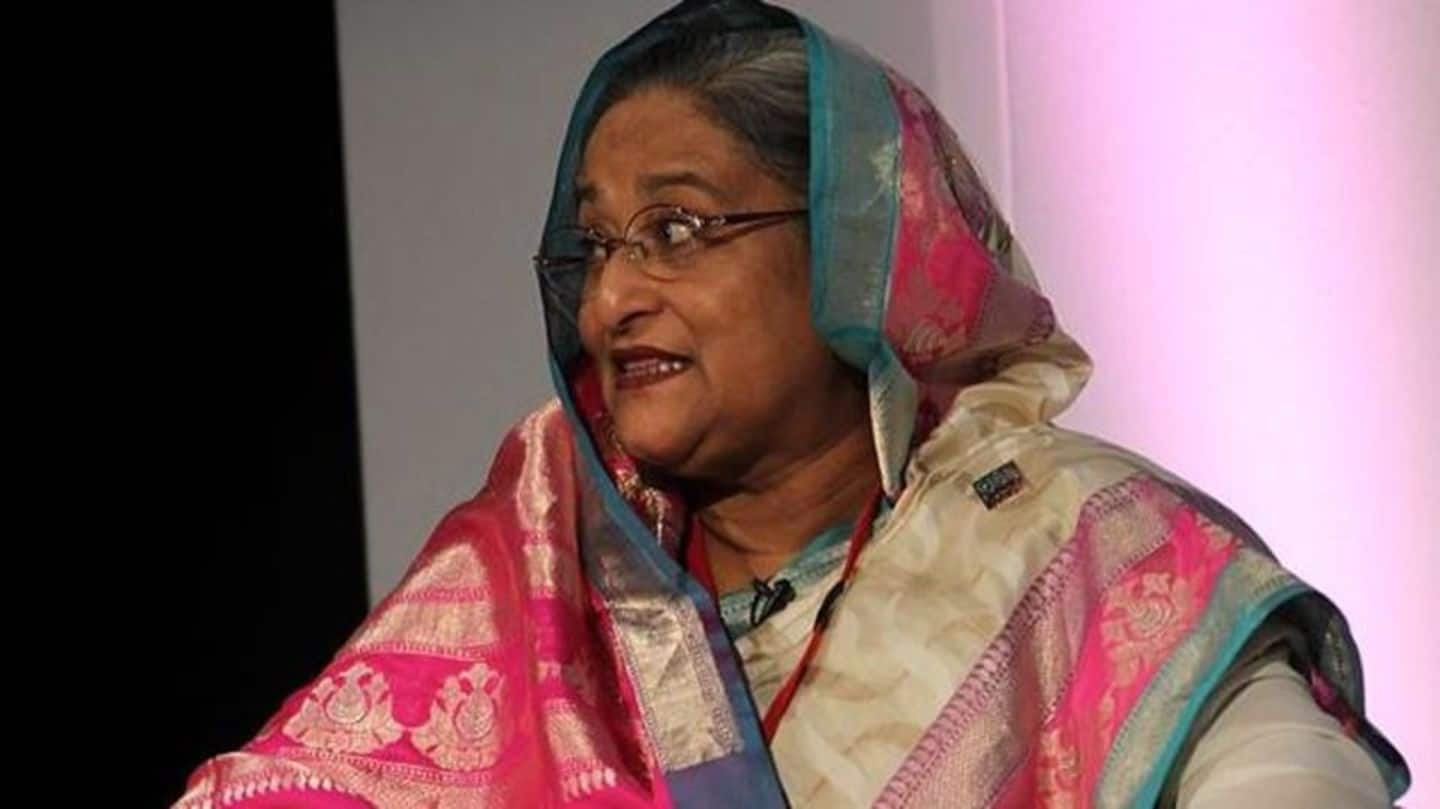
11 awarded life sentences over assassination attempt on Bangladeshi PM
What's the story
In a landmark judgment, a Bangladeshi court has awarded 20 years imprisonment to 11 people for a 1989 attempt to assassinate PM Sheikh Hasina. The convicted persons hail from the now-defunct Bangladesh Freedom Party (BFP). BFP was also behind the assassinations of Hasina's father and the country's first president Bangabandhu Sheikh Mujibur Rahman in 1975. Why is the judgment significant? Read on to know.
Information
Assassination attempt on Sheikh Hasina: What happened?
Around 7-8 armed BFP members opened fire at Hasina's 32 Dhanmandi residence and detonated bombs on 11 August 1989. While security personnel fired back, the assailants chanted slogans and fled. Hasina, who leads the Awami League party, emerged unhurt from the attacks.
Who?
Who were the assailants?
BFP was founded by Bangladeshi army officials Captain Khandaker Abdur Rashid, Colonel Sayed Farook Rahman and Major Bazlul Huda. BFP orchestrated the 1975 coup with the assassination of Bangabandhu and his family members. According to Awami League officials, they have attempted to assassinate Hasina at least 19 times since 1975. Ex-Lieutenant Colonel Abdur Rashid, who has been convicted in both assassinations is reportedly absconding.
Information
What did the court sentence entail?
The court awarded 20 years imprisonment to 11 convicts for the attempt to assassinate Hasina. Additionally, it awarded life sentences to the accused for detonating bombs. It also imposed a 20,000 Taka ($200) fine on each of them.
Details
1975 coup: Bringing the perpetrators to justice
Legal proceedings against BFP workers involved in the 1975 coup and the assassination attempts on Bangabandhu and Hasina were initiated in 1996 when the Awami League returned to power. A chargesheet naming 16 perpetrators was filed in February 1997. Charges were framed in 2009. Five persons convicted in Bangabandhu's assassination attempt were hanged in 2010 after Bangladesh's Supreme Court upheld the conviction.